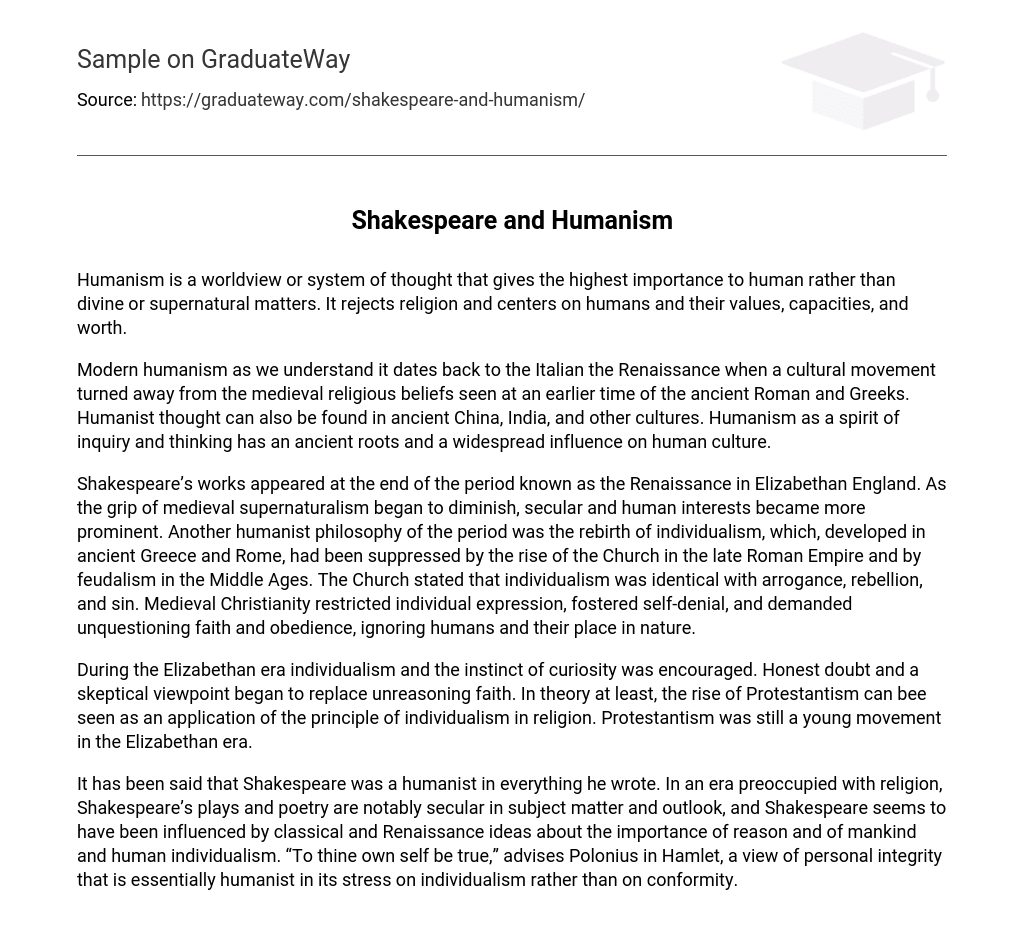Humanism is a worldview or system of thought that gives the highest importance to human rather than divine or supernatural matters. It rejects religion and centers on humans and their values, capacities, and worth.
Modern humanism as we understand it dates back to the Italian the Renaissance when a cultural movement turned away from the medieval religious beliefs seen at an earlier time of the ancient Roman and Greeks. Humanist thought can also be found in ancient China, India, and other cultures. Humanism as a spirit of inquiry and thinking has an ancient roots and a widespread influence on human culture.
Shakespeare’s works appeared at the end of the period known as the Renaissance in Elizabethan England. As the grip of medieval supernaturalism began to diminish, secular and human interests became more prominent. Another humanist philosophy of the period was the rebirth of individualism, which, developed in ancient Greece and Rome, had been suppressed by the rise of the Church in the late Roman Empire and by feudalism in the Middle Ages. The Church stated that individualism was identical with arrogance, rebellion, and sin. Medieval Christianity restricted individual expression, fostered self-denial, and demanded unquestioning faith and obedience, ignoring humans and their place in nature.
During the Elizabethan era individualism and the instinct of curiosity was encouraged. Honest doubt and a skeptical viewpoint began to replace unreasoning faith. In theory at least, the rise of Protestantism can bee seen as an application of the principle of individualism in religion. Protestantism was still a young movement in the Elizabethan era.
It has been said that Shakespeare was a humanist in everything he wrote. In an era preoccupied with religion, Shakespeare’s plays and poetry are notably secular in subject matter and outlook, and Shakespeare seems to have been influenced by classical and Renaissance ideas about the importance of reason and of mankind and human individualism. “To thine own self be true,” advises Polonius in Hamlet, a view of personal integrity that is essentially humanist in its stress on individualism rather than on conformity.





